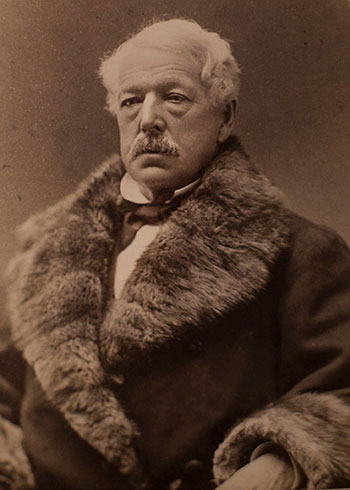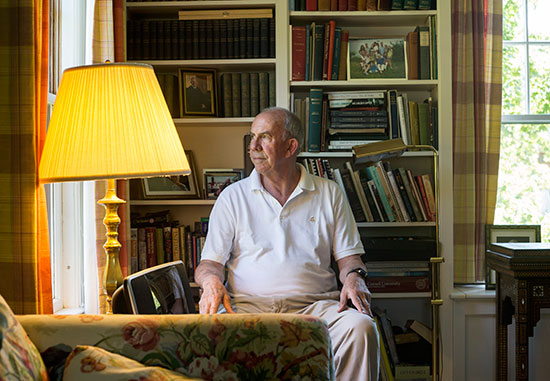Portland's Premier Businessman Proves As Resilient as the City
John Bundy Brown was the state’s wealthiest resident and largest landowner in Portland at the time of the Great Fire of 1866.
News accounts initially estimated his losses at $700,000, or more than $16 million in today’s dollars, but official city records show that he lost about half of that. Among the 17 Brown-owned properties destroyed was the Portland Sugar House, an 8-story refinery for sugar and molasses shipped into the port from the West Indies. The Sugar House alone was a $250,000, or $6 million, loss.

John Bundy Brown lost more money than anyone in Portland, but the tough businessman immediately began rebuilding the city after the Great Fire. Photo courtesy of the Collections of the Maine Historical Society.
But he immediately began rebuilding businesses, including another sugar house and the luxurious Falmouth Hotel. He also built mansions on the 400-plus acres of land he owned on the West End, providing new homes to the city’s more affluent residents and creating what would long be known as the city’s most exclusive neighborhood.
The Brown family, and its businesses, remain in Portland today.
Portland resident Howard Dana Jr., is Brown’s great- great-grandson, and the great-grandson of Brown’s daughter, Ellen Greeley Brown, who was 25 years old on the day of the fire. She would marry William H. Clifford a month later.
Dana is a retired Maine Supreme Judicial Court justice who was appointed by former President Ronald Reagan and reappointed by former President George H.W. Bush to serve as the director of the Legal Services Corporation, which provides legal services to low-income people. He is also chairman of the board of directors at J.B. Brown & Sons, which is still based in Portland. The company owns, manages and develops commercial properties in Greater Portland.
Despite the fire’s significant impact on J.B. Brown’s business, and Brown’s equally significant impact on the rebuilding of Portland, the Great Fire is rarely discussed in the family, according to Dana.

Howard Dana Jr., a descendant of J.B. Brown, is a retired Maine Supreme Court justice who serves as the chairman of the board at J.B. Brown & Sons. Derek Davis/Staff Photographer.
“I did not get a sense this was a big event in our family,” the 76-year-old said. “He probably lost more than anybody else. But that’s because he had more than anyone else, and he was prepared to put what was left into the (rebuilding) effort and that was thought to have been an incentive for others to do the same.”
Dana said that Brown was known to be firm in his business dealings. But there also was a gentler side – Brown had an indoor flower atrium/greenhouse in his Western Promenade estate.
“He was quite a fella. I gather he was not warm and cuddly,” said Dana. “I think he was a hard-ass. That’s the impression I get. A tough compromiser and negotiator. He made two fortunes: the one he lost in the fire and the one he made thereafter.”
Witnesses and Survivors of the Great Conflagration
The Man Who Shouted "Fire!"
William Wilberforce Ruby is remembered for his animated role in calling attention to the Great Fire, but he also went on to serve and lead the city.
MoreA Businessman as Resilient as the City
John Bundy Brown was the state’s wealthiest resident and Portland’s largest landowner, and he would not let the fire defeat him.
MoreFamous Portlanders Touched by Fire
Poet Henry Wadsworth Longfellow and architect John Calvin Stevens are affected by the disaster in different ways.
MoreThe Forgotten Prisoner
From beneath the rubble of City Hall’s evacuated jail, a faint cry is heard.
More
Tell your friends